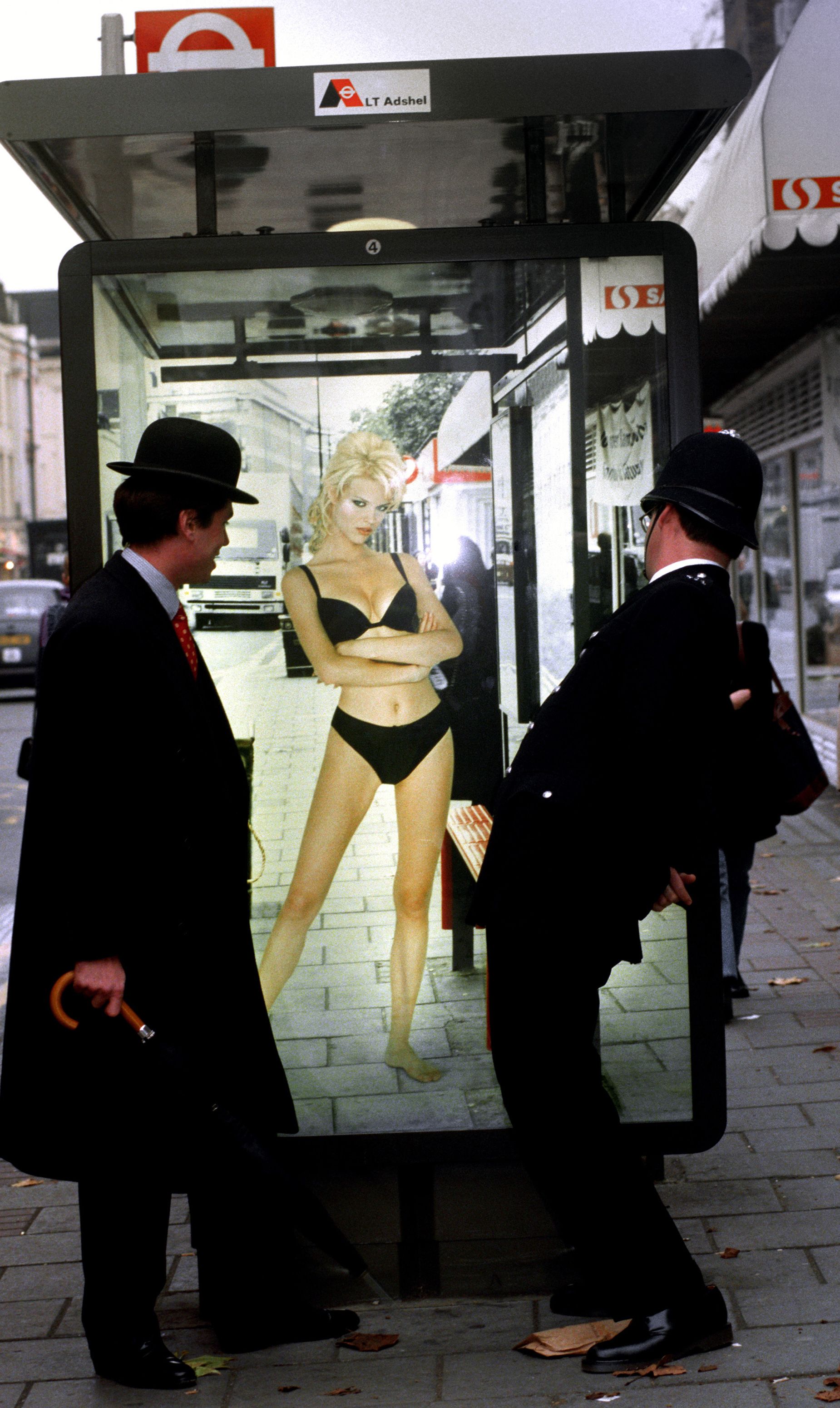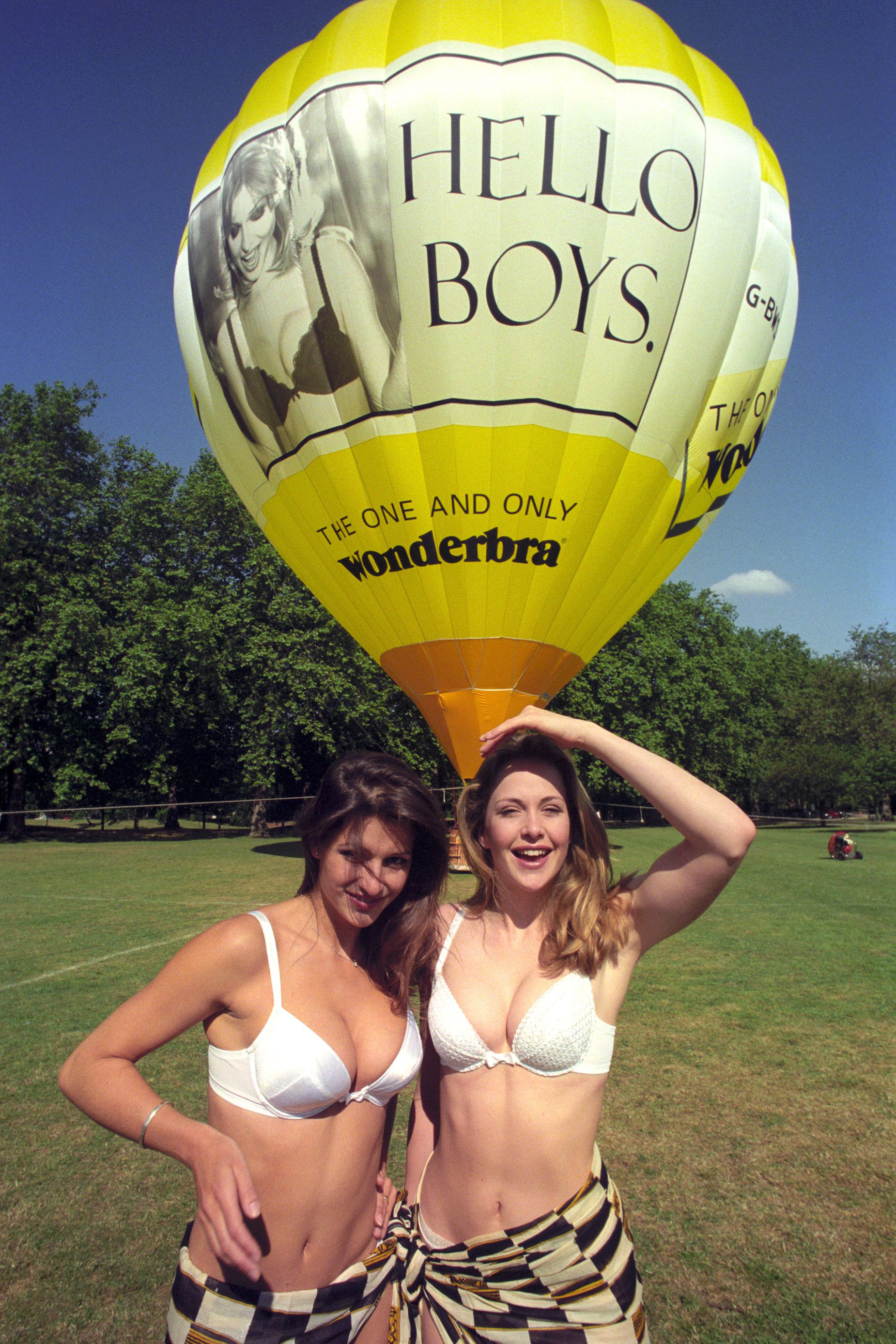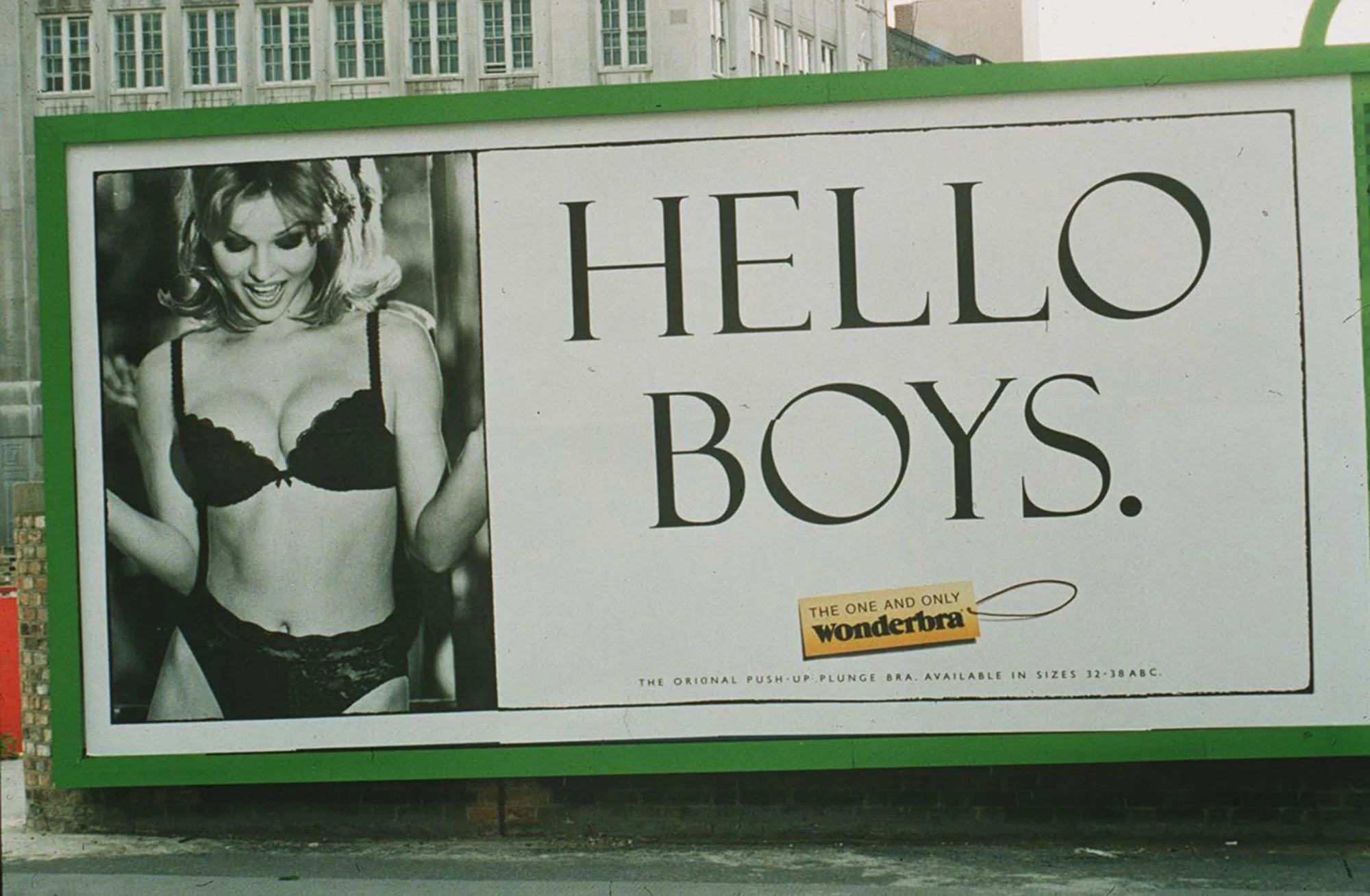Controversial ad campaigns are almost a given for brands and companies looking to grab headlines. This outrage is rarely fatal, and the innovation behind surprising ads often trumps the outrage generated.
A good example of this is the infamous 1994 Wonderbra ad, which turns 30 years old this year. The poster campaign was designed to promote the trademarked deep-V push-up bra (an undergarment product first popularized in the 1960s) to a new generation of consumers. The campaign was shot by fashion photographer Ellen von Unwerth and features model Eva Herzigová in black lace panties and a matching bra.
The accompanying slogan used in the British market is as subtle as a slow-motion wink. “Mind if I bring a few friends?” Read an ad in which Herzogova leans forward to show off the corset’s anti-gravity technology. “Or are you just happy to see me?” is another.
But the campaign’s most famous iteration was much simpler: “Hello Boys,” it read.

Of course, push-up bras are nothing new – one of the earliest padded bras dates back to 1948 – and the Wonderbra brand dates back to the late 1930s, when it was a product of Canada’s Lady Corset Company (later known as Canadelle), and introduced its first push-up style in 1963. The first push-up style was introduced in 1963.
Canadelle first registered the Wonderbra trademark in the U.S. in the 1950s, and later granted British hosiery brand Gossard a license to sell the bra in the United Kingdom. However, in the early 1990s, Sara Lee Corporation (which had acquired Canadelle and was looking to expand its presence in the lingerie market) withdrew the license and relaunched the Wonderbra in the U.S. and U.K. through its own lingerie brand, Playtex.
The 1994 campaign included a series of advertisements that the British business press dubbed the “Battle of the Bras” between Playtex and Gossard, which at the time offered a similar “Ultrabra” product. (Brands such as Victoria’s Secret, Maidenform and Vanity Fair Lingerie also sell versions of the push-up bra.
The voluptuous look is often seen as a direct response to the ideal body espoused by ’90s supermodels like Kate Moss, Jodie Kidd and Jamie King. “The modern breast is no longer an accident of nature, but a fashion choice,” wrote Roxanne Roberts, a fashion contributor and journalist for The Washington Post, in 1994.
At the time, Roberts reported that Hecht’s department store in Washington, D.C., received 1,200 calls inquiring about Wonderbra after relaunching its pre-launch display ads. Although the stateside campaign was not as inspiring as the British one (“Hello Boys” was dropped in favor of vague wisecracks like “Who cares if your hair looks bad today”), the ads still made an impact.
“We got $50 million worth of free publicity for a $25 million product line,” Sara Lee’s late chairman, John Bryan, said in a 1996 press release. “One day, Wonderbra had more space in the New York Times than the U.S. Federal Reserve.”
Part of the huge success of these ads was due to their bold layout. Hertzgova’s image appeared on tall billboards across the U.K. and the U.S., towering over cities like a sexy Godzilla. Both because of its size and its sauce, the campaign was shockingly different from other lingerie brands, which at the time were often very discreet-Victoria’s Secret, for example, operated exclusively through mail-order catalogs (by 1997, according to the now-defunct By 1997, according to the now-defunct Racked, it was distributing 450 million catalogs a year.

“The poster campaign …… was unusual because lingerie publicity had previously been largely confined to women’s magazines,” concluded the Victoria and Albert Museum in London, which has a printed poster available for viewing in its library collection.
In the United Kingdom, there are rumors that the roadside advertisements erected as part of the campaign were so provocative that male motorists crashed their cars at the first sight of Herzigova’s breasts. While there is no evidence that the push-ups directly caused any accidents, British road safety experts did label the billboards, and similar advertisements that followed (such as one depicting a thong-clad woman riding a bicycle by British lingerie brand Sloggi), as dangerous and distracting. The campaign went too far for some Britons, and local officials banned the displays from Birmingham, Britain’s second-largest city.
